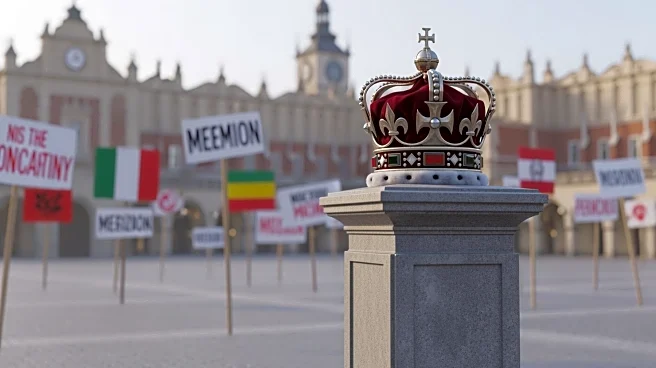What's Happening?
The 'No Kings' protests, initially sparked in the United States, have gained international traction with demonstrations occurring in the United Kingdom, Germany, and France. These protests are part of a global movement challenging authoritarian governance
and advocating for democratic principles. Participants across various countries have gathered to voice their opposition to centralized power and to promote democratic values. The widespread participation highlights the universal appeal of the movement and its resonance with citizens worldwide.
Why It's Important?
The international spread of the 'No Kings' protests signifies a growing global awareness and resistance to authoritarianism. It underscores the interconnectedness of political movements and the shared values of democracy and freedom. The participation of multiple countries suggests a collective demand for governance that respects individual rights and democratic processes. This movement could influence international relations and encourage governments to reconsider their approaches to power and governance.
What's Next?
As the 'No Kings' protests continue to gain momentum, organizers may seek to expand their reach and influence by coordinating more events globally. Governments in countries where protests have occurred might face pressure to address the concerns raised by demonstrators. The movement could lead to increased dialogue on democratic reforms and inspire similar actions in other regions.
Beyond the Headlines
The global nature of the 'No Kings' protests highlights the universal desire for democratic governance and the rejection of authoritarianism. It raises questions about the role of citizens in shaping government policies and the importance of international solidarity in advocating for democratic values. The movement could lead to long-term shifts in political dynamics and inspire a reevaluation of governance structures worldwide.















